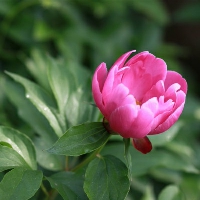First grade children are still in the adaptation period of primary school. If they have not changed from kindergarten identity in time, it will be difficult to improve their performance, which will affect their future studies. But as parents, we must actively guide them.
First graders don't know how to learn
1. Parents must be patient and emotionally stable. Generally speaking, the first grade children can't learn because they have a poor foundation in the past. It is unrealistic and impossible for parents to want their children to learn well at once. Therefore, parents must not be impatient, let alone blame children for their poor learning.
2. Let children attach importance to, make and implement learning plans. Some children have just entered the first grade and have no concept of "learning plan". Every day when they come home from school, they do their favorite homework first, put the homework that is not particularly interesting at the end, and sometimes even forget to write.
At this time, parents can guide the children in grade one to learn how to make plans. Instead of urging them to study as soon as they get home, parents can let them have a rest and guide them to think about the order of writing homework during the rest time.
3. Stimulate children's interest in learning. When children make progress, encourage, praise and affirm them in time to make them feel successful and fun. When a child makes a mistake in his calculation, he must hold his temper and patiently give the child expectation. You can let the child choose the way he likes, or you can take a rest for a while to ease the child's mood. Never force the child. This will backfire.
4. Help children find the right way to learn. As parents, we should help our children develop good learning habits and find the right learning methods. If the learning method is not correct, then children not only do not love learning, but also their grades will become worse and worse, and even they will be disgusted with learning. Parents can communicate more with teachers to find out the reasons why children don't love learning, and then find a targeted learning method suitable for them, so that children can love learning.
5. Let children enjoy the sense of achievement brought by learning. If a person always fails and cannot enjoy the joy of success, he will gradually lose his fighting spirit. The same is true of children's learning. As a parent, we should encourage our children more. Even if there is only one piece of progress, we should praise them without stint. If we make great progress, we can consider giving them some substantial rewards, so that children can have a sense of achievement and experience the endless fun of learning.
6. Communicate with children more to understand their true thoughts. Parents should always communicate with their children, observe their words and behaviors, and have a full understanding of their children's psychological activities. As long as children are willing to open their hearts and talk with you, they can find the crux of their unwillingness to learn, and naturally they can apply the right medicine to the problem.
First graders don't know the reason for learning
1. No fun. Most children do not get enlightened in learning because they do not feel the fun of learning and have no sense of achievement in the process of learning. Because they do not reach the expected height, they naturally cannot enjoy the glory of praise and praise from others. It is this sense of experience that has not been experienced that makes them unable to have strong interest and curiosity in learning.
2. No way found. Some students, in order to meet the requirements of their parents, will desperately urge themselves. They spend a lot of time in the learning process, but because they have not found a way to improve their grades, they do not have any improvement. Such students, in the eyes of their parents, are stupid and have no talent for learning.
How to accompany children through the first grade of primary school
1. Arrange the life after class. First grade children have little homework, or even no written homework. What should they do after class? We should help children develop good study habits and living habits, guide them to review the learning knowledge of the day, and use the learning knowledge to solve life problems.
As for TV and entertainment activities, they must be controlled within a certain time range. As long as children develop good learning habits, they can benefit for life, and the habits formed in the first grade are far more valuable than those in junior high school and senior high school.
2. Give children respect. After children go to primary school, we should give them enough respect, which will help them to improve their self-confidence and work harder. For example, from the first grade, we call them by their first name; For example, we can give children an entrance ceremony, take photos or anything, so that children can feel their growth and dignity.
3. Involve children in preparing learning tools. When children are learning, they must need some learning tools, or an activity, and need to prepare clothes, shoes, etc. Here is a suggestion. When children prepare these, let them participate in, decide what they need, how to obtain, etc., rather than parents do everything, so that children can exercise their ability to solve problems and self-confidence.

